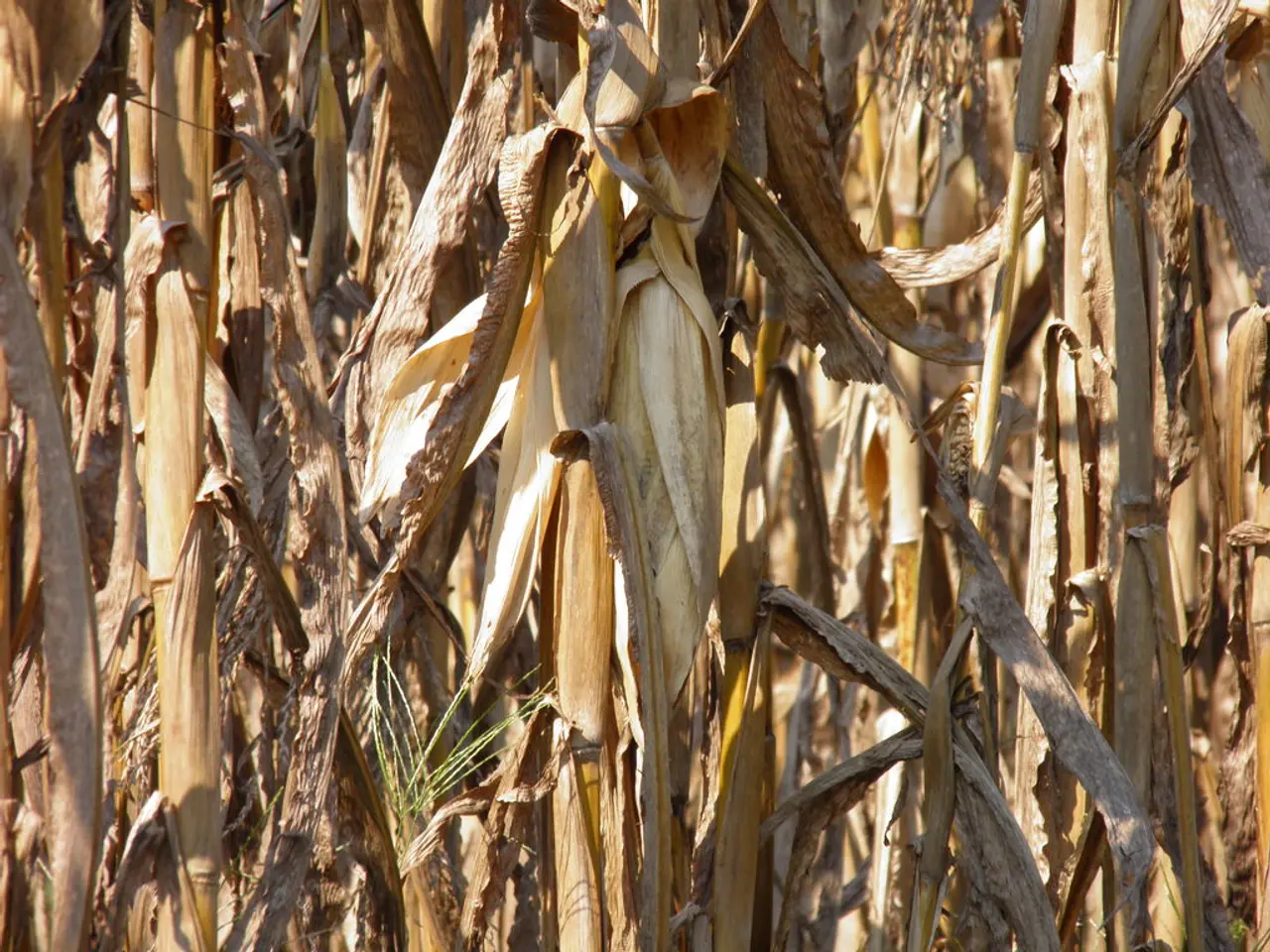Grain Harvest Imperiled - Farmers Express Concerns - Threat to Cereal Crops - Farmers Express Fears
In Baden-Württemberg, farmers are facing challenges due to the recent heavy rain, which is putting the quality of the wheat harvest at risk. The pressure of time is particularly acute in regions where harvesting is usually done early, such as the Franconian Plateau, Hohenlohekreis, Neckar-Odenwaldkreis, Kraichgau, Rhine-Main, and parts of the Main-Tauber district. Regions that were previously very dry and where the grain ripened quickly are also affected.
The Baden-Württemberg State Farmers' Association (BLHV) has warned that what is still standing in the fields is at risk in terms of quality. Bernhard Bolkart, the president of the BLHV, has expressed concern about the potential impact on the standing crops.
Heavy rainfall can saturate soil, impairing root oxygenation and promoting conditions favorable to diseases like Fusarium head blight, which deteriorate grain quality and marketability. This can lead to a decrease in the protein content of wheat, a crucial parameter for processing, especially for bread wheat. Higher elevations such as the Swabian Alb or the southeastern part of the state with alpine influence, which had sufficient rainfall, are less affected by this issue.
However, the Ministry of Agriculture in Stuttgart has not reported any visible "sprouts" on the wheat stalks or a decrease in the protein content of wheat in the previously mentioned regions. The Ministry has not warned about the risk to the quality of the standing crops either.
To mitigate these quality risks, farmers are advised to adopt various strategies. These include optimizing drainage systems in fields to prevent waterlogging, timely application of fungicides guided by weather monitoring, and employing AI-based forecasting tools that combine satellite data and machine learning to predict yield and assess crop health in real time. Adherence to regional agronomic recommendations, such as those provided by the Landwirtschaftliches Zentrum Baden-Württemberg, can also support plant resilience under wet conditions.
Despite these challenges, a large portion of the wheat harvest has not yet been brought in in Baden-Württemberg. The Ministry of Agriculture in Stuttgart has acknowledged that high humidity and warmth can promote fungal diseases that can significantly impair the quality of the wheat harvest. However, they have not reported any specific impact on wheat, rye, or oats in previously hail-damaged fields in the previously mentioned regions.
In summary, while the Ministry of Agriculture in Stuttgart has not issued any warnings about the quality of the standing crops in Baden-Württemberg, farmers are facing challenges due to the recent heavy rain. Combining technological innovations in yield forecasting and satellite monitoring with improved field drainage and tailored fungicide use constitutes the current best approach to addressing quality challenges in the wheat harvest affected by heavy rain in the region.
The Commission's consideration of a new system of compensation for the costs of cereal production might be influenced by the current challenges farmers in Baden-Württemberg face, given the heavy rain that has put the quality of the wheat harvest at risk. In deciding on potential measures, weather conditions, and their impact on crop health, could be crucial factors taken into account.








